| Regionalization at the KBS |
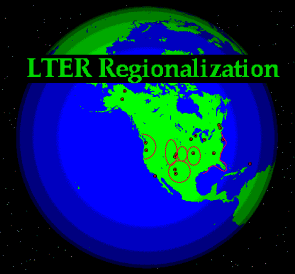 |
| Regionalization at the KBS |
 |
Authors: Stuart H. Gage, G. Philip Robertson
Scientific Basis for Regionalization at the KBS
LTER Site
The Kellogg Biological Station (KBS) constitutes the only row
crop agricultural site among the network of the NSF LTER sites.
KBS is located in southwestern Michigan in a landscape comprised
of a complex of interspersed crop fields, non-cultivated fields,
deciduous forest patches, planted conifer stands, lakes and
streams and urban centers. A study of the landscape diversity
within LTER sites showed that the area in southwest Michigan
surrounding the KBS LTER was the most diverse of the LTER sites
(Magneson et al. 1993). At the Kellogg LTER site, research
emphasizes investigations on patterns and consequences of
diversity of plant and animal communities from the single plot to
the landscape scale. Because the KBS-LTER Site represents
row-crop agriculture, the site represents a large land base in
North America.
Row-crop ecosystems at KBS are typical of cropping systems in the
North Central Region of the United States which includes 12
states (OH,MI, IN, IL, IA, WI, MN, ND, SD, NE, KS, MO), commonly
referred to as the "Corn Belt". Michigan's soils and
climate are complex, in part due to the influence of the Great
Lakes and glaciation.
Regionalization Research
LTER research at KBS is focused on gaining a basic understanding ecological relationships in high-productivity cropping systems. The application of this understanding should result in cropping systems in which ecological knowledge can substitute for our current reliance on agrochemicals. The objective of regional programs associated with this research is to determine how ecological interactions at a variety of scales are affected by and affect larger societal issues such as land use policy and the environmental cost of crop production, and larger environmental issues such as groundwater quality and radiative trace gas dynamics.
Several Regional programs and projects are ongoing or are under
development by KBS-LTER investigators. The objective of these
projects is to demonstrate and determine how research being
conducted on organisms in the agricultural landscape can be
scaled up to the larger regions of agricultural production on the
North American Continent. The location of Kellogg LTER in
southwestern Michigan provides a vantagepoint to examine
biological and social features at different scales at the KBS
Site from 1) a landscape perspective, 2) within Michigan's
watersheds,3) at a statewide scale, 4) within the North Central
or "corn belt" Region and 5) within the center of North
America.
The selected projects are intended to demonstrate the scope of
activities ongoing at the Kellogg LTER which have a regional
theme. Each of the examples shows an ecological scale component
as a focus on social implications.
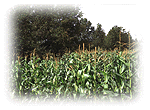 Primary productivity in Southern Michigan |
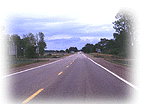 Land use transformation |
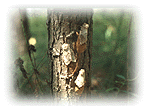 Gypsy moth dynamics in Michigan |
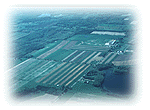 Great Lakes agricultural profile |
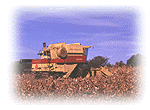 Crop productivity in the corn belt |
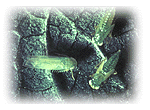 Flow of biota in the atmosphere |
Reports
Gage, S.H. 1996. A perspective on sustainable agriculture in the Land Grant University System. Panel on Sustainable Agriculture. Proc. Eco-Informa 96. Vol. 10. Env. Res. Inst. Mich. Ann Arbor, MI. pp.146-154.
Krieves, L., S.H. Gage, G.P. Robertson and M. Klug. 1996. Regional resources at the Kellogg Biological Station. Interactive Poster. Eco-Informa 96. Lake Buena Vista, FL. November 1996.
Gage, S.H. and G.P. Robertson. 1996. Regional dimensions of the Kellogg Long Term Ecological Research Program. NSF-LTER Coordinating Committee, Harvard Forest, MS. September 1996.
Gage, S.H. 1996. Computational Ecology. Entomology Seminar, Michigan State University, East Lansing, MI. October 1996.
Gage, S.H. 1996. Biological aspects of agro-ecosystems at different scales. Earth System Science Education Address. Geology Department, Bryn Mawr College, Philadeliphia, PA. October 1996.
Top | KBS LTER home page | The LTER network
For information contact: gages@pilot.msu.edu
Document author(s): Stuart Gage
E-Mail: gages@pilot.msu.edu
Revised: December 09, 1996
URL: http://www.ent.msu.edu/esal/lter_region